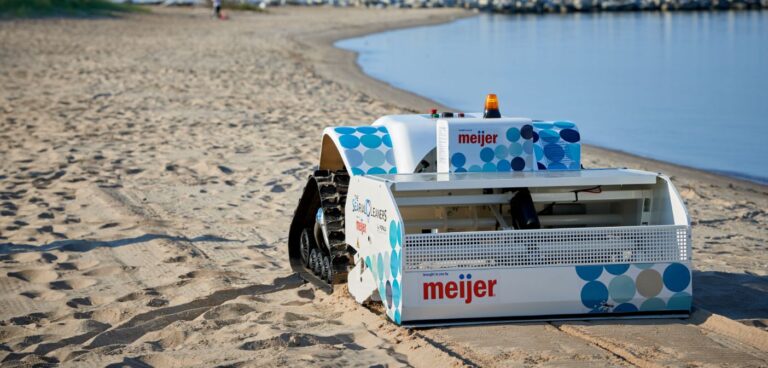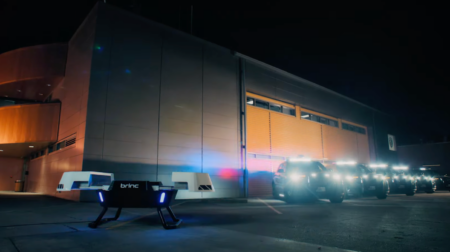US retailer Meijer has announced that it will be participating in a programme to remove plastic from North America’s Great Lakes through use of two remote-controlled technologies – the BeBot and Pixie Drone.
This initiative is supporting a large-scale deployment of these types of remote-controlled devices across multiple states.
The Great Lakes cover the largest surface freshwater system in the world.
“Microplastics have become one of the most pressing issues facing our waterways, both in the Great Lakes and on a global scale; we are both excited and honoured to be part of Meijer’s initiative to fund new technologies to address this problem,” said Dr. Al Steinman, the Allen and Helen Hunting research professor at Grand Valley State University Annis Water Resources Institute (GVSU-AWRI).
“It is critical to resolve the microplastic dilemma, not only for the ecology of our local waters, but also for the economy of our coastal communities, who visit and recreate on our beaches and lakes with the expectation they are clean and pollutant-free.
“The BeBot and Pixie Drone will help ensure those expectations are met.”
Beginning this month, Meijer and the CGLR will lead cleanup projects at beaches, marinas and waterways in Michigan, Ohio and Wisconsin alongside a variety of community, state and environmental NGO partners.
The BeBot is a remote-controlled electric (solar and battery powered) beach cleaning robot, which Meijer claims can clean 32,000ft² (2,972m²) per hour. It is designed to rake through sand to collect waste for both disposal and recycling without changing the beach environment.
The Pixie Drone is a remote-controlled water drone – which can reportedly collect up to 200lbs (91kg) of material per use – will be deployed to navigate through marinas and other waterways to collect plastic litter and waste debris floating on the surface. It is also intended to collect other water data, such as temperature, pH, salinity, turbidity and dissolved oxygen.
Representatives from the GVSU-AWRI will be in control of the two machines along the Muskegon lakeshore in Michigan.
The BeBot and Pixie Drones were funded by a US$1m donation Meijer made to the charitable branch of the CGLR in early 2022. The deployment of these devices is a contribution to a wider Great Lakes recovery effort.
Meijer also claims to be working on several other projects to improve the condition of the Great Lakes, including the installation of gutter bin stormwater filtration systems at select Meijer sites, with the bins supposedly capturing hundreds of pounds of pollution per year.








